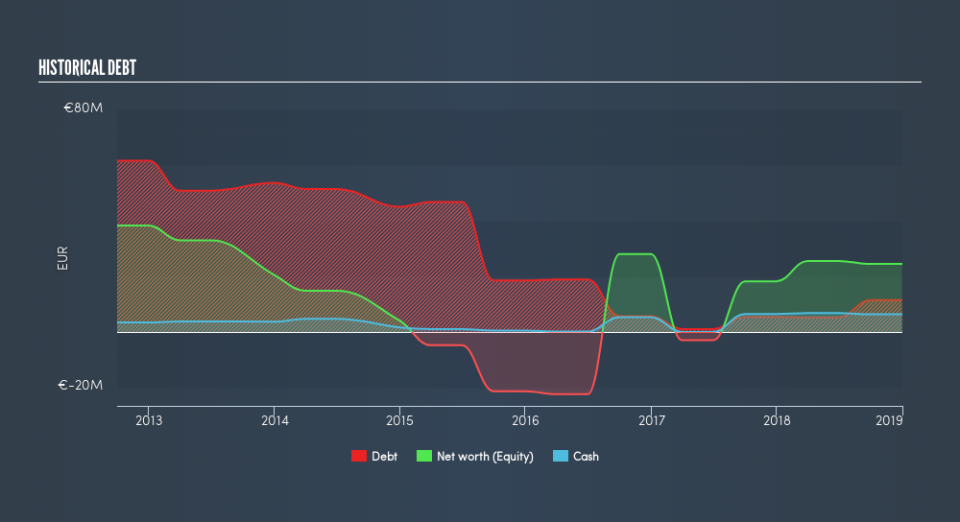Here's Why PLC (BIT:PLC) Can Afford Some Debt

Legendary fund manager Li Lu (who Charlie Munger backed) once said, 'The biggest investment risk is not the volatility of prices, but whether you will suffer a permanent loss of capital.' So it seems the smart money knows that debt - which is usually involved in bankruptcies - is a very important factor, when you assess how risky a company is. As with many other companies PLC S.p.A. (BIT:PLC) makes use of debt. But the real question is whether this debt is making the company risky.
What Risk Does Debt Bring?
Debt assists a business until the business has trouble paying it off, either with new capital or with free cash flow. Ultimately, if the company can't fulfill its legal obligations to repay debt, shareholders could walk away with nothing. While that is not too common, we often do see indebted companies permanently diluting shareholders because lenders force them to raise capital at a distressed price. Of course, plenty of companies use debt to fund growth, without any negative consequences. When we examine debt levels, we first consider both cash and debt levels, together.
View our latest analysis for PLC
How Much Debt Does PLC Carry?
You can click the graphic below for the historical numbers, but it shows that as of December 2018 PLC had €11.4m of debt, an increase on €5.46m, over one year. However, it does have €6.34m in cash offsetting this, leading to net debt of about €5.11m.
A Look At PLC's Liabilities
According to the last reported balance sheet, PLC had liabilities of €33.4m due within 12 months, and liabilities of €9.67m due beyond 12 months. Offsetting these obligations, it had cash of €6.34m as well as receivables valued at €23.5m due within 12 months. So it has liabilities totalling €13.3m more than its cash and near-term receivables, combined.
PLC has a market capitalization of €41.1m, so it could very likely raise cash to ameliorate its balance sheet, if the need arose. However, it is still worthwhile taking a close look at its ability to pay off debt. There's no doubt that we learn most about debt from the balance sheet. But it is future earnings, more than anything, that will determine PLC's ability to maintain a healthy balance sheet going forward. So if you're focused on the future you can check out this free report showing analyst profit forecasts.
Given it has no significant operating revenue at the moment, shareholders will be hoping PLC can make progress and gain better traction for the business, before it runs low on cash.
Caveat Emptor
Over the last twelve months PLC produced an earnings before interest and tax (EBIT) loss. Indeed, it lost €262k at the EBIT level. Considering that alongside the liabilities mentioned above does not give us much confidence that company should be using so much debt. Quite frankly we think the balance sheet is far from match-fit, although it could be improved with time. On the bright side, we note that trailing twelve month EBIT is worse than the free cash flow of €3.1m and the profit of €5.0m. So one might argue that there's still a chance it can get things on the right track. When we look at a riskier company, we like to check how their profits (or losses) are trending over time. Today, we're providing readers this interactive graph showing how PLC's profit, revenue, and operating cashflow have changed over the last few years.
If you're interested in investing in businesses that can grow profits without the burden of debt, then check out this free list of growing businesses that have net cash on the balance sheet.
We aim to bring you long-term focused research analysis driven by fundamental data. Note that our analysis may not factor in the latest price-sensitive company announcements or qualitative material.
If you spot an error that warrants correction, please contact the editor at editorial-team@simplywallst.com. This article by Simply Wall St is general in nature. It does not constitute a recommendation to buy or sell any stock, and does not take account of your objectives, or your financial situation. Simply Wall St has no position in the stocks mentioned. Thank you for reading.


